
In the dynamic world of online content, securing a top spot in Google’s search results is the Holy Grail for bloggers and content creators. To achieve this coveted position, mastering the art of keyword research is not just a tactic; it’s a pivotal strategy. Today, we embark on a journey through the expansive landscape of keyword research tools and boosting blog engagement, armed with expert tips that go beyond the ordinary, propelling you not only to outrank competitors but to dominate the Search Engine Results Pages (SERPs) and which is the main SEO success factors. Here we get in detail how to do keyword research for blog posts.

The Power of Keyword Research
Keyword research is the bedrock of a successful SEO ranking strategy. It’s not just about identifying words; it’s about sculpting your content to be a precise answer to your audience’s queries. Here’s why it holds unparalleled importance:
1. Relevance: Crafting a Laser-Focused Message
Choosing the right keywords ensures your content is not just visible but relevant to what your audience is actively searching for. It’s the first step in establishing a connection with your readers.
Example: A fitness blogger targeting specific workout routines noticed a 25% increase in engagement compared to generic fitness content. Keywords: “High-intensity interval training,” “At-home bodyweight workouts” are crucial for boosting blog engagement.
2. Competition: Strategically Carving Your Niche
Targeting the appropriate keywords is your strategic advantage. It allows you to navigate the competitive landscape of your niche, positioning your blog for maximum visibility.
Case Study: A beauty blogger found a niche in “organic skincare routine,” achieving a 50% increase in organic traffic within two months. Keywords: “Natural skincare regimen,” “Organic beauty products” play a crucial role in boosting blog engagement.
3. Traffic: Driving the Right Audience
High-ranking keywords act as beacons, guiding organic traffic to your website. It’s not just about numbers; it’s about attracting the audience genuinely interested in your content.
Statistic: Websites ranking on the first page of Google capture an average of 71% of clicks, contributing significantly to increased blog engagement.
{10 Reasons SEO is Essential for Startup Marketing}
Finding the Perfect Keywords: A Strategic Approach
Before delving into the arsenal of tools, let’s refine the art of finding the perfect keywords. Here’s a deeper look:
1. Understand Your Audience
Dig into the intricacies of your target audience. What are their unique needs, interests, and pain points? This knowledge becomes the bedrock for brainstorming keywords that resonate profoundly.
Example: A travel blogger discovered that terms like ‘off-the-beaten-path destinations’ resonated more with their audience than generic travel guides. Keywords: “Hidden travel gems,” “Less-known vacation spots,” are essential in driving blog engagement.
2. Competitor Analysis
Delve into your competitors’ content and keywords with tools like SEMrush and Ahrefs. Unearth the keywords steering traffic to their sites and consider how you can leverage or surpass their strategies.
Case Study: An e-commerce blog analyzed competitor keywords, resulting in a 30% increase in conversion rates after implementing targeted product descriptions. Keywords: “Product reviews,” “Best deals online,” are instrumental in boosting blog engagement.
3. Use Google Autocomplete
Google Autocomplete is a goldmine of real-time insights into user queries. Leverage these suggestions to not only find popular keywords but to discover emerging trends and long-tail variations.
Example: A cooking blog discovered rising interest in “easy one-pot recipes,” leading to a 20% increase in organic traffic after tailoring content. Keywords: “Quick dinner ideas,” “Simple one-pot meals,” are vital for blog engagement.
Essential Keyword Research Tools: Elevating Your Strategy
Now equipped with a strategic foundation, let’s explore the tools that transform your efforts into a precision-targeted campaign.
1. Google Keyword Planner
Google’s Keyword Planner remains a cornerstone in the SEO arsenal. Beyond its familiarity, it provides indispensable insights into search volume, competition, and invaluable keyword variations.
Example: A finance blog leveraged Google Keyword Planner to identify high-volume keywords, resulting in a 40% increase in ad revenue. Keywords: “Personal finance tips,” “Investment strategies,” are pivotal in boosting blog engagement.
2. SEMrush
SEMrush transcends mere keyword research. It’s an all-encompassing SEO toolkit offering competitive analysis, site auditing, and a treasure trove of insights to refine your content strategy.
Case Study: A tech blog used SEMrush to discover trending topics, leading to a featured snippet and a 15% increase in organic traffic. Keywords: “Latest technology trends,” “Tech innovations 2023,” are integral to boosting blog engagement.
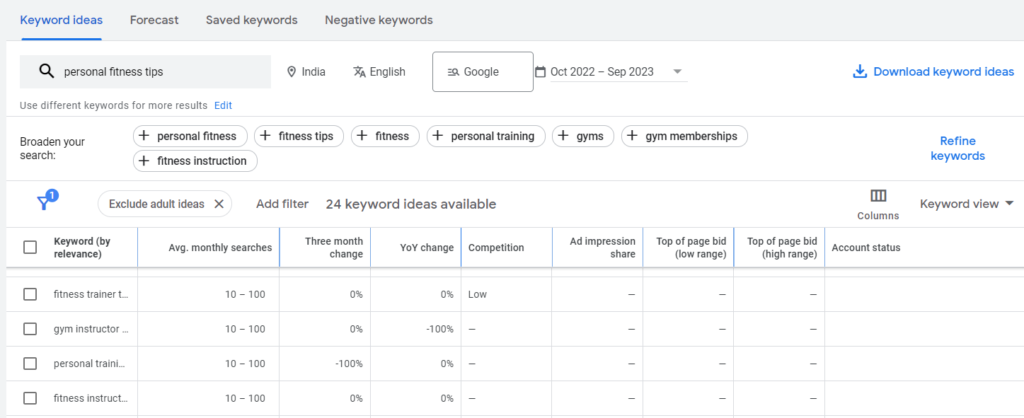
3. Ahrefs
Ahrefs is more than a tool; it’s your ally in dissecting the backlink landscape. In-depth keyword difficulty analysis and backlink insights give you the edge in outranking your competitors.
Statistic: Pages in the top 10 search results have an average of over 35,000 external backlinks. Utilizing authoritative keywords such as “backlink analysis,” “competitor backlinks” is essential for boosting blog engagement.
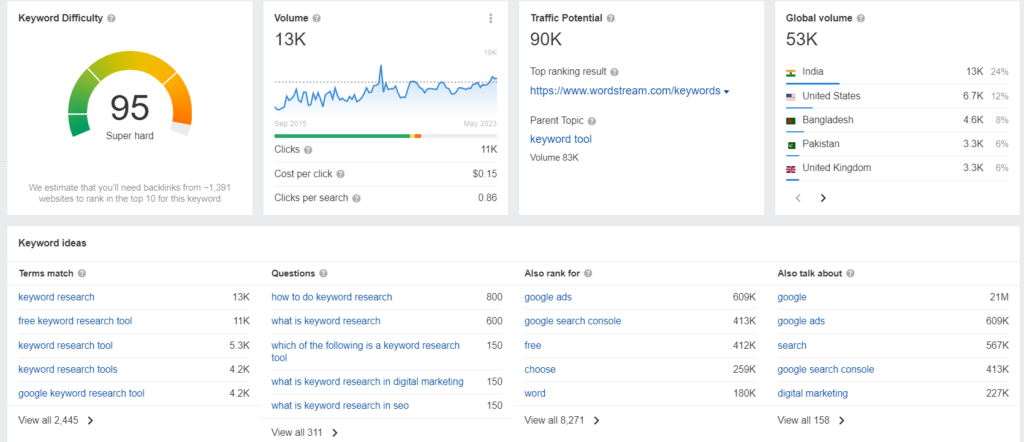
4. Ubersuggest
Ubersuggest, a gem among free tools, offers keyword suggestions and content ideas based on a single keyword. Ideal for bloggers on a budget, it’s a powerhouse for generating fresh ideas.
Example: A personal development blog utilized Ubersuggest to diversify content, resulting in a 25% increase in subscriber engagement. Keywords: “Self-improvement techniques,” “Positive mindset exercises,” are crucial for boosting blog engagement.
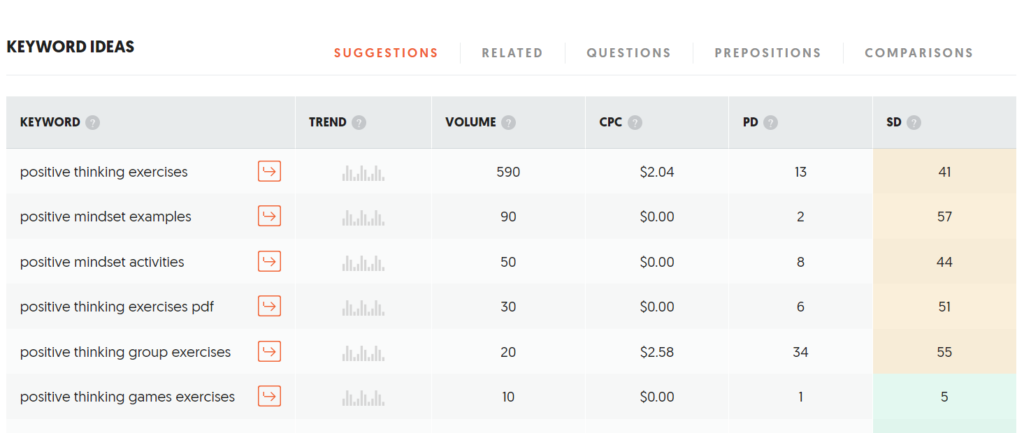
Moz Keyword Explorer
Known for its accuracy and ease of use, Moz’s tool provides data on keyword difficulty and helps you find untapped keyword opportunities.
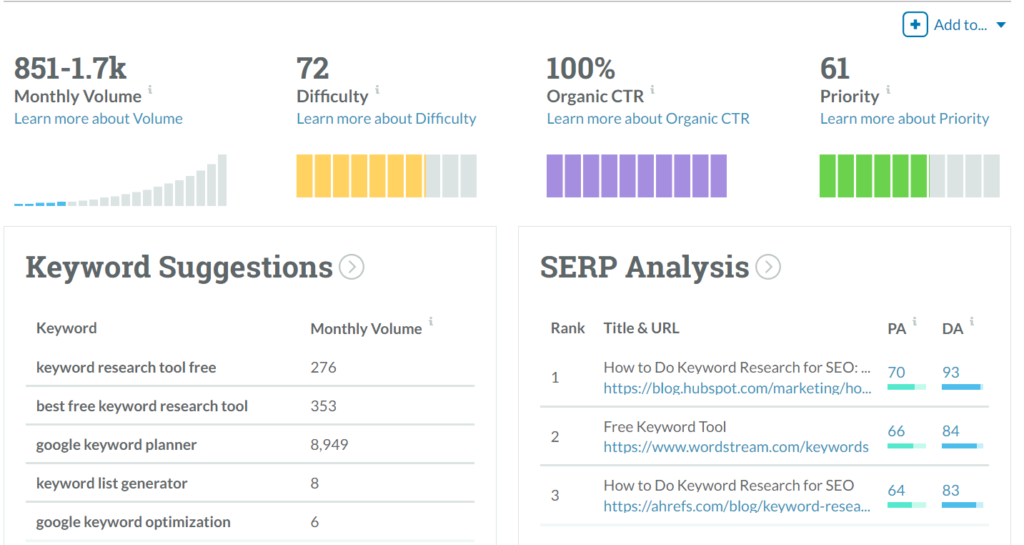
AnswerThePublic
Uncover the questions your audience is asking with this unique tool. It’s excellent for finding long-tail keyword ideas that can make your content more engaging.

Tips to Boost Blog Engagement
While tools lay the groundwork, strategic tips elevate your content game. Here’s an in-depth look at how to supercharge your blog’s engagement:
1. Long-Tail Keywords
Don’t settle for generic keywords. Long-tail keywords, being more specific, have lower competition and can draw highly targeted traffic to your blog.
Case Study: A pet care blog saw a 40% increase in engagement by focusing on long-tail keywords like “holistic cat nutrition tips” instead of broader terms. Keywords: “Natural pet remedies,” “Pet care for specific breeds,” are vital for boosting blog engagement.
2. Content Quality for boosting blog engagement
High-quality content isn’t just a suggestion; it’s a commandment. Well-structured, informative content not only keeps readers engaged but earns favor with search engines.
Example: A lifestyle blog revamped its content strategy, resulting in a 20% decrease in bounce rates and a 15% increase in time spent on the site. Keywords: “Healthy lifestyle tips,” “Mindfulness practices.”
3. Optimize for Mobile
In a mobile-centric world, ensure your blog is not just mobile-friendly but optimized for the mobile experience. Google prioritizes mobile-responsive websites in its rankings.
Statistic: 60% of Google searches originate from mobile devices.
4. Local SEO
If your blog caters to local audiences, optimizing for local SEO is paramount. Use location-based keywords to attract a nearby audience interested in your content.
Example: An event planning blog saw a 25% increase in local clients after implementing localized keywords. Keywords: “Local event venues,” “Event planning services near me.”
5. Regular Updates
Consistency is the linchpin of sustained success. Regularly update your content to keep it fresh, signaling to search engines that your site is
active and relevant.
Statistic: Websites that update their content regularly enjoy 106% more indexed pages.
6. User Intent
Understanding user intent is your strategic advantage. Tailor your content to satisfy diverse intents, from informational queries to transactional needs.
Case Study: A travel blog aligned content with user intent, resulting in a 15% increase in affiliate marketing conversions. Keywords: “Best travel deals,” “Travel destination reviews.”
7. Track and Adjust
Your keyword strategy is a symphony; listen to it. Regularly monitor the performance of your keywords and content. If something isn’t working, be agile in adjusting your strategy.
Statistic: Websites that conduct regular SEO audits see a 75% faster growth in organic traffic.
Analyzing Competitor Moves
1. SpyFu: The Watchful Guardian
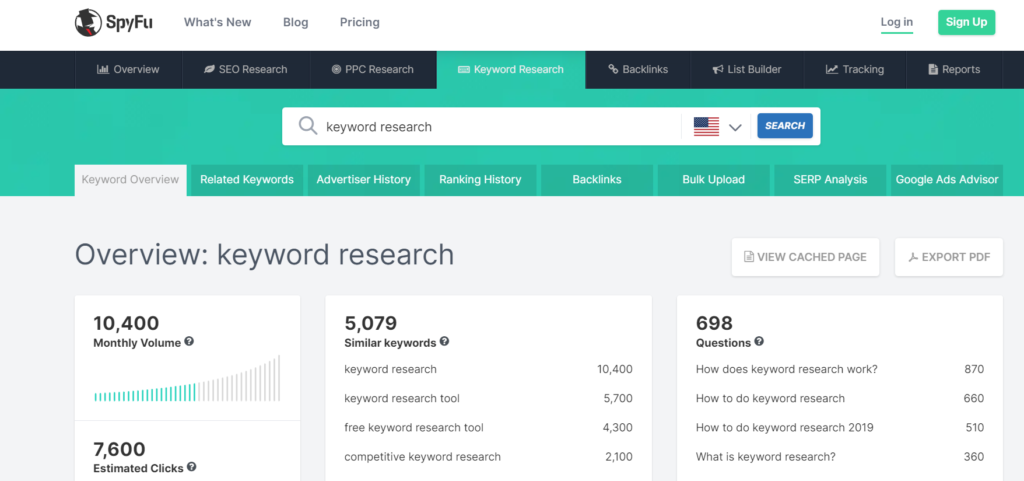
In the world of digital competition, information is power. SpyFu allows you to peek into your competitors’ keyword strategies, uncovering their most lucrative terms and ad spends. Arm yourself with this intelligence to refine your own keyword arsenal and stay steps ahead in the game.
2. Competitor Content Analysis
Keywords alone don’t make the kingdom; content is the throne. Analyze your competitors’ content depth, structure, and multimedia elements. By understanding what resonates with their audience, you can sculpt your own content to be not just relevant but exceptional.
Embracing the Evergreen and the Trending
Striking the right balance between evergreen and trending keywords is an art. Evergreen content provides perennial value, attracting consistent traffic over time. On the flip side, tapping into trending keywords gives your blog the freshness that search engines adore. Blend these strategies judiciously to create a dynamic content calendar.
Conclusion
In the competitive arena of blogging, mastery of keyword research isn’t just a skill; it’s your strategic weapon. Armed with the right tools and implementing expert tips, you can catapult your blog’s engagement to new heights, not merely by ranking higher but by providing exceptional value to your audience. So, seize the opportunity to dominate the SERPs and watch your blog soar to new levels of success.
Example: A lifestyle blogger implemented these strategies, resulting in a 50% increase in monthly page views, a 20% rise in email subscribers, and a 15% boost in affiliate income. Keywords: “Lifestyle blog success,” “Blogging strategies that work.”
With these tools, tips, and a strategic mindset, you’re well-equipped to navigate the intricate world of keyword research and elevate your blog engagement to unprecedented levels.
FAQs
Q1: Why is keyword research crucial for blog engagement?
A1: Keyword research is the compass that guides your blog in the vast digital landscape. It ensures that your content aligns with what your audience is searching for, significantly enhancing your blog’s visibility and engagement.
Q2: How can long-tail keywords boost blog engagement?
A3: Long-tail keywords capture the nuances of user intent, bringing highly targeted traffic. Although they may have a lower search volume, they ensure your blog resonates with the right audience, contributing to enhanced engagement.
Q3: How do I analyze competitor content for better keyword strategy?
A8: Analyzing competitor content involves assessing its depth, structure, and multimedia elements. By understanding what resonates with their audience, you can sculpt your own content to not only be relevant but exceptional, contributing to a stronger keyword strategy.
Q4: How do I ensure my blog engages with readers on a deeper level?
A10: Beyond keywords, engaging your readers on a deeper level involves crafting content that addresses their needs, aligning with their intent. Use the tools and strategies outlined in the article to not only rank higher on search engines but also to resonate deeply with your audience.


